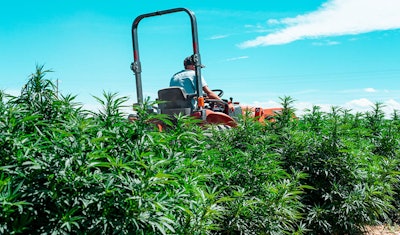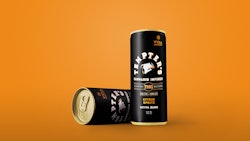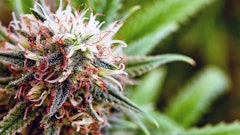
U.S. Senate lawmakers unanimously voted to advance legislation on July 10 that contains cataclysmic language for those involved in the cannabinoid hemp industry.
The Senate Appropriations Committee approved the fiscal 2026 Agriculture, Rural Development, Food and Drug Administration (FDA), and Related Agencies Appropriations Act with 27 members in support. The 136-page spending bill provides more than $27 billion in discretionary funding to support farmers, rural communities, nutrition programs, medical research and myriad issues to protect the nation’s food supply.
However, lawmakers also included provisions to redefine hemp in a manner that closes a “loophole that has resulted in the proliferation of unregulated intoxicating hemp products being sold across the country,” according to a summary from the committee.
Sen. Mitch McConnell, R-Ky., spearheaded the federal legalization of hemp in the 2018 Farm Bill, viewing the plant’s grain and fiber outputs as agricultural commodities that could provide farmers in the Bluegrass State an alternative cash crop amid the declining tobacco industry. But what McConnell did not expect was for the 2018 legislation to lead to a booming consumer demand for intoxicating cannabinoid products, such as delta-8 THC gummies, that include synthetic derivatives from hemp.
The former majority leader spoke about this unintended consequence on Thursday as a member of the Appropriations Committee.
“These intoxicating products have flooded the market in the absence [of a] regulatory structure and often use deceptive and predatory marketing towards children with packaging and logos similar to existing food products, such as Oreos, candy, gummies and cereals,” McConnell said. “The way I see it, the language I helped secure takes us back to the original intent of the 2018 Farm Bill and closes this loophole. My 2018 hemp bill sought to create an agricultural hemp industry, not open the door to the sale of unregulated, intoxicating, lab-made, hemp-derived substances with no safety framework.”
The 2025 hemp provisions that advanced out of the Senate committee this week largely mirror those that the U.S. House Appropriations Committee adopted on June 23 under the lead of Rep. Andy Harris, R-Md.
Under both versions, hemp-derived cannabinoid products containing synthetic compounds and/or quantifiable amounts of THC or THCA—or other cannabinoids that have similar effects on humans or animals—would be illegal. The legislation authorizes the U.S. Secretary of Health and Human Services to determine what qualifies as “quantifiable amounts.”
However, hemp grown or harvested for “industrial” purposes, such as gain and fiber, would not be held to the same stringent standard and instead would be defined based on having a total THC level of not more than 0.3% on a dry-weight basis.
Farmers could still grow industrial hemp to produce microgreens or other edible hemp leaf products intended for human consumption that are “harvested” from an immature hemp plant under the Senate legislation. The House’s version uses the term “derived” from an immature hemp plant.
Also, the Senate’s version delays implementing the new definition for hemp for one year.
While cannabis and hemp industry stakeholders argue over whether a “loophole” persists in the 2018 Farm Bill, legislators on both sides of the aisle made their intent clear in the Senate body this week: the federal government does not want intoxicating hemp products to be sold to American consumers, especially not children.
Sen. Jeff Merkley, D-Ore., said during the committee markup that while he supports McConnell’s effort to clarify that legislative intent, he also fears the new definition would have another unintended consequence—this time on nonintoxicating hemp products.
“My concern about the amendment, or the definition as written, is that it addresses one very important issue, but causes another problem,” Merkley said. “The important issue it addresses is not allowing hemp to be grown to produce hallucinogenic products. And that, unfortunately, due to the magic of laboratories, has occurred.
“But then there are other products that come from hemp, such as CBD, that has in fact been a significant factor as a health care supplement in many, many products across America that does not have a hallucinogenic effect.”
Amid this worry, Merkley said he’d like to continue to work with McConnell over the coming year to develop a definition that does not potentially eliminate CBD hemp products from the U.S. marketplace.
Jonathan Miller, general counsel at the U.S. Hemp Roundtable, offered a similar take in a statement provided to Cannabis Business Times.
“Senator McConnell got hemp right in the 2018 Farm Bill, and again today when he said that we need to prohibit dangerous synthetic and copycat products, while keeping all hemp products out of the hands of children,” Miller said. “However, how that is done matters. The U.S. Hemp Roundtable believes that the best way to do that is through robust regulation, not prohibition.”
The hemp business advocacy organization believes that a blanket ban on more than 90% of consumable hemp products is not the right path, Miller said.
The American Trade Association of Cannabis and Hemp (ATACH) also weighed in on the Senate committee’s approval of the hemp language, denouncing the current market for lab-made, synthetic THC.
However, ATACH Vice President of Policy and State Advocacy Chris Lindsey had a different take on CBD, saying that the bill provides distinctions between intoxicating and nonintoxicating products, synthetic and natural products, and industrial and consumer products to create regulatory lanes.
“Natural and nonintoxicating hemp products, such as CBD, would be recognized and protected for the first time under federal law,” Lindsey said. “The bill stipulates that the Health and Human Services Secretary would set a limit for THC in these products, giving manufacturers a clear boundary and implementation timeline. These protections for CBD and similar products are explicit and intentional.”
In a committee report on the bill, the body’s members acknowledged the “growing consumer demand for American-made hemp products” as well as the need for “clear, science-based guidance” and regulations to help ensure consumer safety and confidence as businesses innovate to meet that demand.
To support that effort, the committee members directed the FDA to work with industry stakeholders, including small businesses, scientists, manufacturers, public health experts and academic researchers, on suggested limits for the amounts of THC or other cannabinoids in hemp-derived products. They intend for this collaboration to develop meaningful regulations under the Federal Food, Drug, and Cosmetic Act.
Furthermore, while the Senate legislation itself doesn’t intend to regulate federally illegal cannabis, the committee’s report on the bill sent a warning message to state-sanctioned businesses:
“The committee is concerned about the proliferation of products marketed in violation of the Federal Food, Drug, and Cosmetic Act [FFDCA], including products containing derivatives of the cannabis plant. The committee is aware that non-FFDCA compliant products pose potential health and safety risks to consumers through misleading, unsubstantiated and false claims that cannabis and cannabis derivatives can treat serious and life-threatening diseases and conditions, including COVID–19 and cancer.”


























